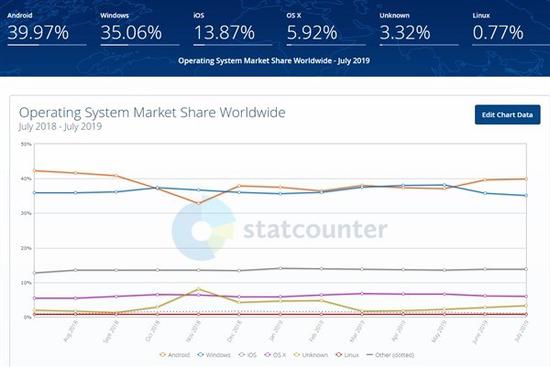Earlier this year, Huawei launched its much-anticipated operating system HarmonyOS as a replacement to Google‘s Android. However, the OS is not limited to smartphones and will power a range of devices, including smart home products.
Now, a new report claims that the market share of HarmonyOS will reach 2 percent globally next year, making it the world’s fifth largest operating system surpassing Linux. Counterpoint further points that the share of HongMeng OS in China will reach 0.1 percent by the end of this year and 5 percent by the end of next year.
Currently, Android is the world’s leading operating system with a market share of 39 percent, and is followed by Windows having 35 percent market share, Apple’s iOS with 13.87 percent market share, and macOS with 5.92 percent market share. Linux is currently the fifth largest operating system with 0.77 percent share.
HarmonyOS, announced earlier this year, can support a wide range of applications including Android, Linux, and HTML5 in the future. The new operating system uses Huawei’s ARK compiler and will support Kotlin, Java, Javascript, C, and C++ programming languages. It will also have a verified Trusted Execution Environment for a better connected security across multiple devices.
The company had said that it began working on the OS back in 2017. It is currently in version 1.0 with Version 2.0 scheduled for launch next year and version 3.0 planned for 2021. We should also see it appear on PCs next year and on VR headsets in 2022.
HarmonyOS has already started making its way to the company’s devices starting with smart televisions. Honor Vision TV and Huawei’s Smart TV both come powered by HarmonyOS out-of-the-box. However, the company has confirmed that it has no plans to launch a smartphone powered by this OS this year.
Recently, in an interview with the correspondents of Fortune Magazine, Huawei CEO Ren Zhengfei made a bold claim saying that their in-house developed operating system would be able to compete with top rivals like Apple’s iOS within a period of 2 years.